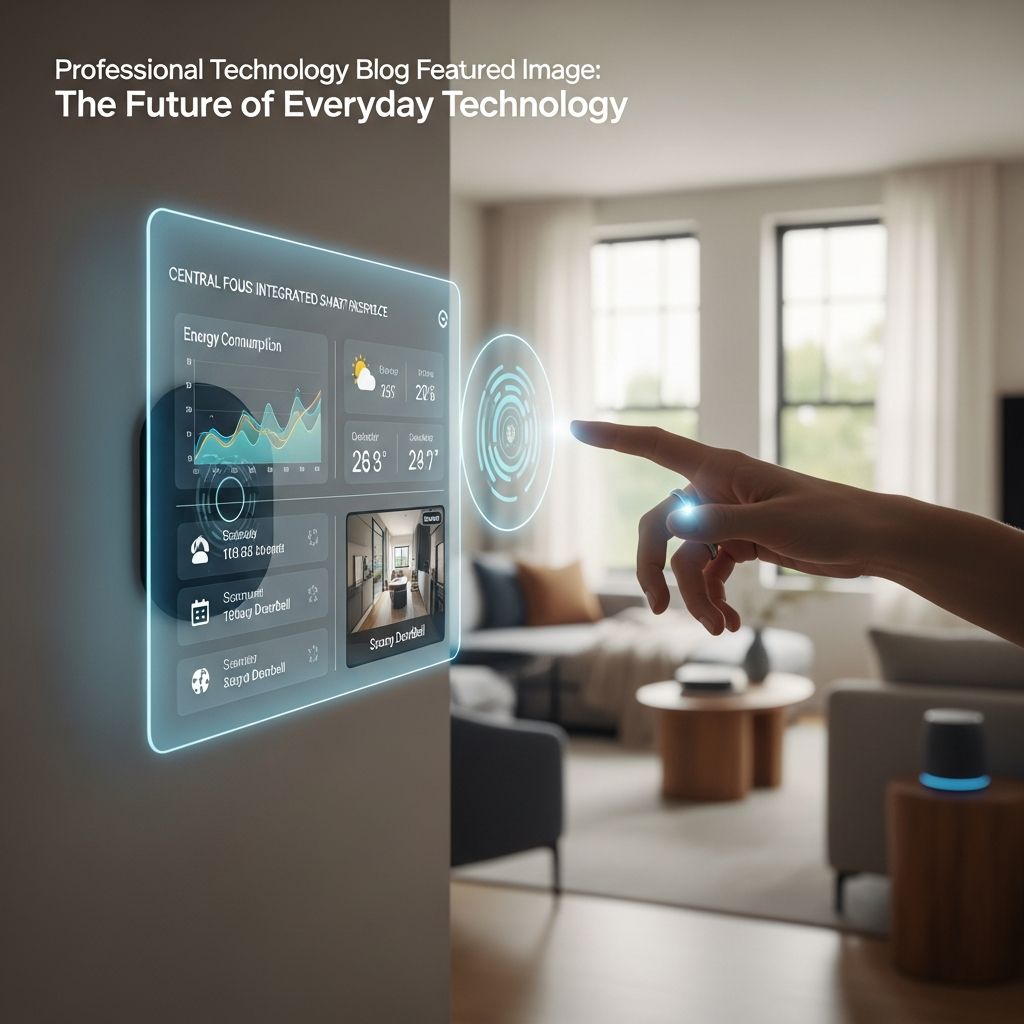Everyday technology is evolving at a rapid pace, reshaping how we live and work. Increasingly fast and reliable internet connectivity is becoming a fundamental utility, with 5G networks, fiber-optic expansion, and advanced Wi-Fi standards such as Wi-Fi 6, 6E, and the emerging Wi-Fi 7 enhancing speed and reducing latency. These improvements enable smoother real-time collaboration, higher-quality streaming, and broader smart home and Internet of Things (IoT) applications.
Artificial intelligence (AI) and machine learning are becoming more capable and accessible. AI-driven tools automate routine tasks, provide deep insights from big data, and generate content through generative AI. As a result, productivity is improving across industries, although this also raises challenges related to bias, transparency, and possible job displacement. Ethical use and supervision are critical to maximize benefits while minimizing harm.
Cloud and edge computing complement each other to support future technology infrastructure. Cloud platforms remain essential for storing data and performing extensive computations, while edge computing brings processing closer to devices. This hybrid approach reduces latency and bandwidth demand, enabling applications like industrial automation, autonomous systems, and responsive gaming experiences to perform efficiently at scale.
Cybersecurity and data privacy are increasingly important as connectivity spreads. The growing attack surface exposes users and businesses to ransomware, supply-chain exploits, and other cyber threats. Implementing strong security measures such as encryption, zero-trust architectures, and clear privacy policies is vital for safeguarding users and maintaining trust in technology systems.
Sustainability drives innovation in technology hardware and infrastructure design. Energy-efficient components, smarter data center layouts, and optimized software help reduce the environmental footprint of technology operations. These efforts not only comply with regulatory requirements but also lower long-term costs and meet consumer and investor expectations toward greener solutions.
Practical steps for individuals include prioritizing digital literacy and cybersecurity hygiene, such as using strong passwords, enabling two-factor authentication, and keeping software updated. Familiarity with emerging tools like AI assistants and collaboration platforms helps people stay competitive in an evolving job market. Balancing convenience with privacy through careful data-sharing choices is also recommended.
Small businesses can benefit from embracing cloud services to increase scalability and reduce infrastructure costs. Integrating AI for everyday operations—chatbots for customer support, analytics for marketing, and predictive insights for decision-making—enhances efficiency. Essential cybersecurity practices, including regular backups, endpoint protection, employee education, and incident response planning, provide a solid defense against threats.
For organizations and IT leaders, developing hybrid cloud-edge architectures optimizes both costs and performance. Ethical AI adoption requires governance frameworks that address bias and accountability in automated decisions. Sustainability efforts should include tracking energy consumption, improving infrastructure efficiency, and evaluating suppliers based on environmental impact metrics.
With technology advancing continuously, its value depends on thoughtful adoption and management. Ubiquitous connectivity, artificial intelligence, cloud and edge computing, cybersecurity, and sustainability will define the near future of everyday technology. By enhancing digital skills, securing systems, and choosing sustainable options, individuals and organizations can harness benefits while mitigating risks. Staying adaptable and informed remains the key strategy in this dynamic landscape.
